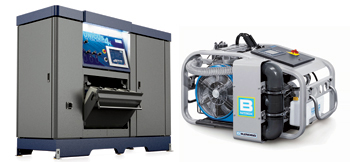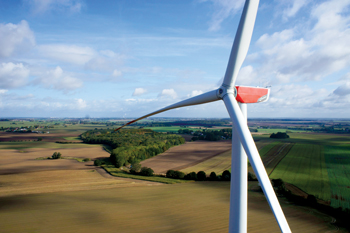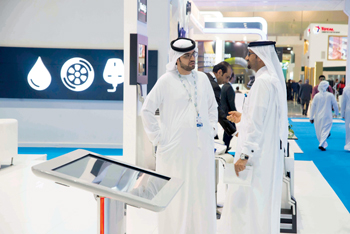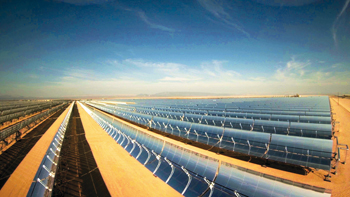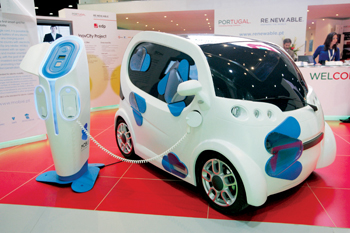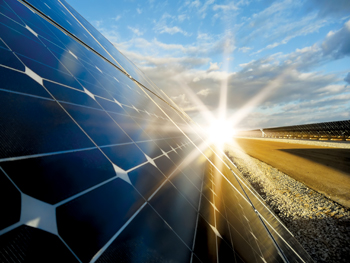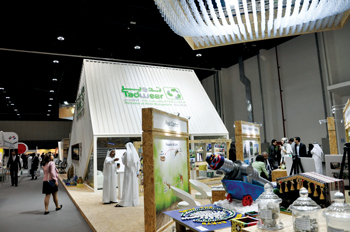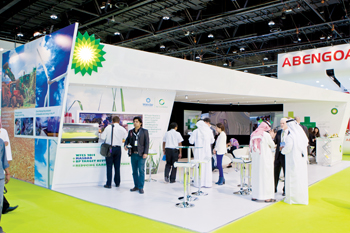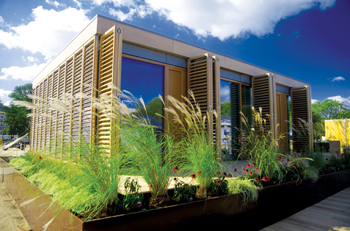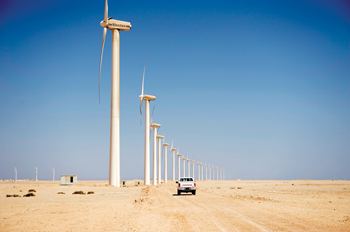
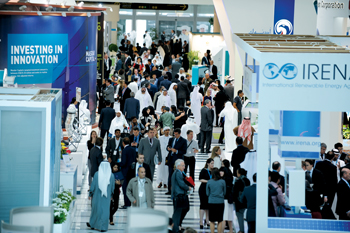 WFES ... making energy sustainable
WFES ... making energy sustainable
Growing populations and energy demands are causing Middle East countries to increase energy capacity and diversify their energy mix with renewable energy
The Middle East and GCC face a rapidly-growing demand for energy, and renewable energy – especially solar and wind – will play a key role in helping these countries meet the demands, while also reducing greenhouse gas emissions and providing local jobs, says Naji El Haddad, group event director, World Future Energy Summit (WFES).
With the rapid decrease in the cost of solar photovoltaic modules, which have decreased in cost by 75 per cent since 2009, according to the recent Irena report “REthinking Energy 2015”, and the Middle East and North Africa (Mena) region’s large sun exposure, solar energy will be key in reducing the reliance on fossil fuel, El Haddad told OGN in an exclusive interview.
“In these challenging times, renewable energy is increasingly serving as an innovative solution for Mena countries to rebuild, reconstruct, and drive diversified economic growth. Renewable energy’s low cost of production, reduced environmental impact, and ease of implementation in rugged and demanding situations make renewables the best power source for the region’s future. Whether developed by governments, the private sector, or NGOs, renewable energy can transform the key development pillars of power, health, infrastructure, education, and people,” he says.
Mena is set to the second-fastest growing for renewable energy investment, reaching $35 billion per year from 2015 to 2020, according to the Irena report. As the cost of solar and wind power continues to drop, renewable energy is increasingly competitive against fossil fuels.
Meeting renewable energy targets in the GCC can save 4 billion barrels of oil and create 130,000 direct jobs per year to 2030, according to Irena’s “GCC Renewable Energy Market Analysis” report set to be launched at WFES 2016, which will be held in Abu Dhabi from January 18 to 21.
Lessons learned in how governments are strengthening their policies and regulations to encourage international investment in sustainability programmes and train the workforce in technical skills will be a key focus in the conference agendas, says El Haddad.
 |
El Haddad ... focus on renewables |
Financing renewables will be under the microscope at WFES, especially in easing international financing and investment in renewable energy, forging strategic partnerships, and proactive energy policy reforms. One important case study will be Egypt’s proposed feed-in-tariff programme, along with insights from the country’s public-private partnerships, build-own-operate and build-operate-transfer tenders, and moves for currency stability.
Governments across the region are receiving the message loud and clear – with renewable energy continuing to grow from strength to strength in the Middle East.
In the GCC alone, countries aim to save 4 billion barrels of oil and reduce emissions by 1.2 gigatonnes between now and 2030, according the International Renewable Energy Agency (Irena).
GCC countries can also see significant socioeconomic benefits as well. By 2030, Irena projects that renewables will create about 130,000 direct jobs per year, and reduce water consumption by 20 per cent per year – a staggering 18 trillion litres.
Moreover, the private sector will play a key role in the development of Mena’s renewable energy sector. Among the high-profile private sector renewable energy players expected to attend WFES include 5Capitals, Abdul Latif Jameel, ADC Energy Systems, ALEC Energy, Aman, EFG Hermes, Herbert Smith Freehills, Sargent and Lundy and SkyPower, he says.
The WFES is the Mena region’s largest platform for renewable energy, energy efficiency, and clean technology as part of the wider Abu Dhabi Sustainability Week, hosted by Masdar. WFES 2016 is expected to welcome more than 30,000 attendees from 170 countries, and 650 exhibiting companies from more than 40 countries.
New to this year’s edition of WFES is the expansion of a dedicated platform for solar energy, Solar Expo, where industry experts, innovators, suppliers, and buyers will convene to showcase the latest in solar energy technologies, including PV modules, concentrated solar power (CSP), and other cutting-edge solar technologies aiming to help governments achieve ambitious goals for renewable energy, and discuss challenges and opportunities on a regional and global level, he says.
To be able to cater to the rapidly growing global urban population, energy-efficient and sustainable transportation solutions are needed to reduce the negative impact of fossil fuel consumption, congestion, and pollution. The new Sustainable Transport Zone was launched to become a hub, highlighting advancements in sustainable vehicles across land, sea, and air, he says.
Sustainability Business Connect, which organised 1,800 meetings between buyers and sellers, will return across all three shows, offering networking and business development opportunities through pre-arranged meetings between the government and private sectors.
WFES is co-located with the International Water Summit (IWS), which focuses on water sustainability, and EcoWaste, on sustainable waste management. At both events, renewable energy will also be addressed, with IWS hosting panels and exhibitors in smart utilities and energy-efficient water production, while EcoWaste will feature waste to energy innovations.
All three exhibitions – WFES, IWS, and EcoWaste – serve as a unique platform for industry experts, innovators, government entities, and leading high-level business representatives to come together to share best practices, the latest developments, and in-depth discussions on global and regional challenges and opportunities in the sustainable energy industry.
IWS is expected to host 180 exhibiting companies from 35 countries, and 10,000 attendees from over 70 countries, while EcoWaste is expected to welcome more than 50 exhibiting companies from 17 countries, and more than 4,500 trade visitors from the waste industry.
The WFES conference agenda highlights recent Mena trends and advancements in sustainable energy. Discussion points will include trends that will shape the industry over the next twenty years, challenges faced by the region’s utility providers, alternative approaches to financing renewable projects, and a country spotlight on Egypt’s rapidly advancing solar and wind markets.
Also new this year is the Future Cities Forum, which will address sustainability amid regional Smart City developments, as well as the Egypt Energy Forum, which will put a spotlight on one of the region’s strongest renewable energy markets.
Confirmed speakers for WFES 2016 include HE Nizar Al-Adsani, deputy chairman and CEO, Kuwait Petroleum Company (KPC), Dominique Ristori, director-general for Energy, European Commission, Dr Ahmad Belhoul, chief executive officer of Masdar, and other senior representatives from Siemens, Shell, First Solar and Saudi Aramco.
IWS will host water experts such as Dr Taha Ouarda, Head of the Institute Center for Water and Environment at Masdar, Christopher Gasson, owner of the Global Water Intelligence, and Gus Schellekens, director of the Sustainability and Climate Change Team at PWC. At EcoWaste, speakers hail from Tadweer, Jeddah Municipality, Inesfly Corporation, Irshad, and Orkin.
WFES, one of the world’s leading energy events, will support renewable energy innovation across the Middle East and North Africa. With more than 30,000 attendees and 650 exhibitors, WFES will feature knowledge exchange, explore the latest developments, and address the challenges in the future energy area.







































































